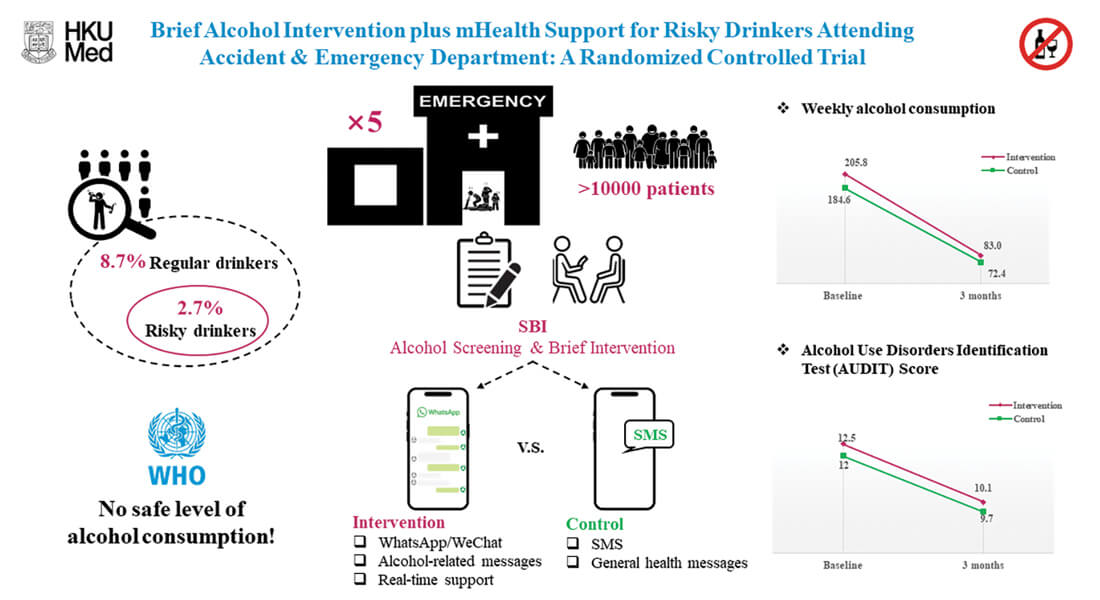Brief Alcohol Intervention plus mHealth Support for Risky Drinkers Attending Accident & Emergency Departments
Leah Li Yajie | Year 4 Doctor of Philosophy student
As a PhD candidate nearing the completion of my studies, I was given the incredible opportunity to present my research at the U21 Health Sciences Nursing and Midwifery Group Research Postgraduate Symposium 2024. Our research focused on utilising the power of mobile health technologies to bridge the gap in helping risky drinkers reduce or cease alcohol consumption. We recognised that public misconceptions and limited awareness of the harmful effects about alcohol drinking persist, and effective screening, intervention and readily available services for risky drinkers remain limited. In response to a suggestion for opportunistic delivery of alcohol screening and brief intervention (SBI) in primary healthcare settings by the World Health Organization (WHO) and health departments in Hong Kong, we developed an innovative intervention model that features a proactive recruitment approach, SBI delivery and personalised behavioural real-time support through mobile instant messaging (WhatsApp/WeChat) for risky drinkers.
We tested this model among risky drinkers attending accident and emergency departments, as alcohol use is associated with problems that require emergency treatment, such as injuries. The preliminary results showed that the model was significantly effective in helping risky drinkers reduce their alcohol consumption, as well as lower their risky levels. These results are crucial in highlighting the potential of nurse-led interventions in preventive care and in facilitating positive change in addictive behaviours.
Participating in the U21 Symposium was not merely an academic exercise but an opportunity to contribute to understanding about the nurse’s role in healthcare innovation. The experience has reinforced my belief in the power of nursing research to effect meaningful change and exemplifies how nursing students can drive impactful research that translates into practice. Encouraged by the potential of our intervention and the recognition received at the symposium, I am motivated to expand the intervention model to other populations and settings, continuously improving and adapting our approach to meet diverse needs in the future.
Back


